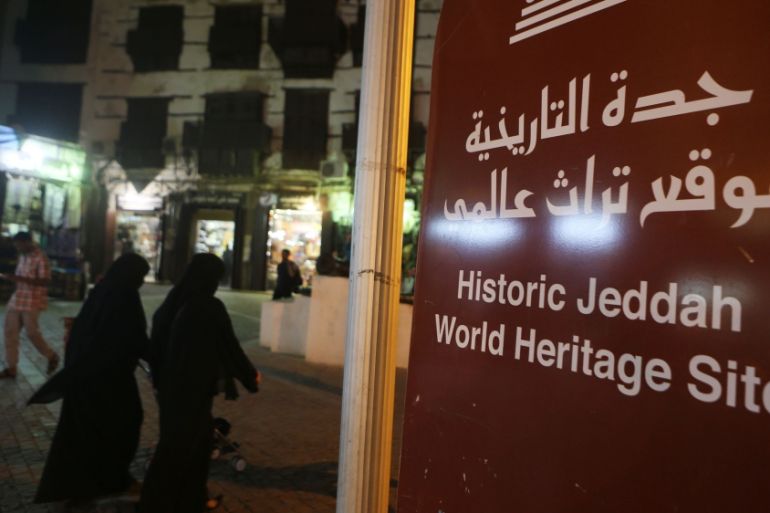Saudi Arabia names princess as UNESCO representative
Rare female appointment to international body comes as ultra-conservative country works to revamp its image abroad.

Saudi Arabia named Princess Haifa al-Mogrin as its representative to UNESCO, a rare female appointment to an international body, as the ultraconservative country works to revamp its image.
The announcement came on Wednesday, almost a year after the kingdom appointed its first woman ambassador to the United States, Princess Rima bint Bandar.
Keep reading
list of 4 itemsTen years after Chibok girls kidnapping: One woman’s struggle to move on
Poland lawmakers take steps towards liberalising abortion laws
Arizona’s top court allows near-total 1864 abortion ban to go into effect
-
Saudi court sentences Yemeni to death for attack on theatre group
- Is the G20 a platform for cooperation or division?
“King Salman has approved the delegation of Prince Haifa as permanent representative to UNESCO,” the United Nation’s cultural agency, the official Saudi Press Agency said Wednesday.
Crown Prince Mohammed bin Salman has been on a modernisation drive, seeking to project a moderate, business-friendly image to boost investment and help diversify the economy away from oil.
Saudi Arabia recently eased restrictions on women – including allowing them to drive and receive passports and travel abroad without permission from male relatives.
Under de facto ruler Crown Prince Mohammed, it has also opened the country to sporting, cultural and entertainment events.
Reforms
As part of the reforms, the oil-rich kingdom, which has five UNESCO World Heritage sites, is also working to grow its tourism sector.
It announced in September it would offer tourist visas for the first time, relaxing rules that had largely restricted visits to business travellers and Muslim pilgrims.
But Riyadh has also faced intense diplomatic fallout over the murder of dissident journalist Jamal Khashoggi, who was killed and dismembered in the kingdom’s consulate in Istanbul in 2018.
Saudi Arabia has also been criticised for mounting a crackdown on dissidents, including influential preachers and intellectuals.
In 2018, authorities arrested at least a dozen female activists, most of whom were detained in a wide-ranging crackdown just before the historic lifting of the decades-old ban on female motorists.
Many of the women have accused interrogators of sexual harassment and torture while in custody. Saudi authorities deny the accusations.